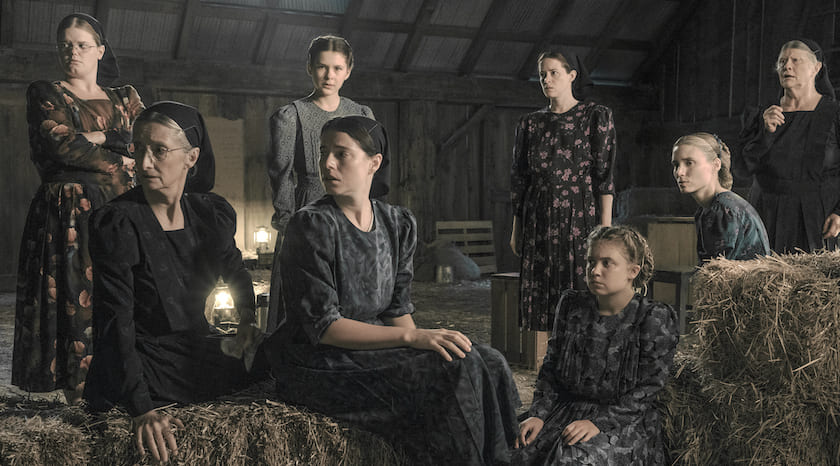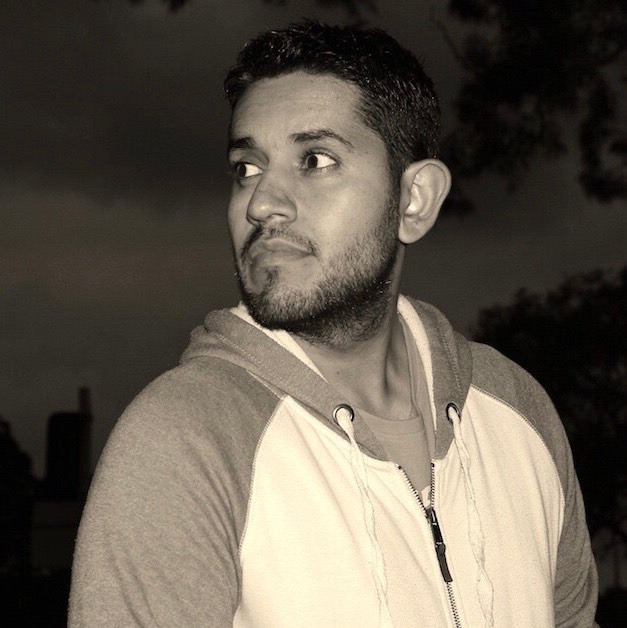[Watch the complete review above or read it below!]
Women Talking, the fourth feature from actor-turned-filmmaker Sarah Polley (Away from Her, Take This Waltz), a potentially triggering drama that discusses the sensitive topic of sexual abuse – and some of the various themes associated with it – in the context of a secluded religious community.
This is an adaptation of a 2018 novel of the same name by Miriam Towes. That book is inspired by the shocking and horrific true story of what occurred in a Mennonite colony in Bolivia. I’ll leave the details of what happened there aside for those interested in looking it up.
The film is set in 2010, but you wouldn’t really know it on a glance, as our story take place within a religious community that’s seemingly stuck in time. The women and girls of this isolated Mennonite colony have long been brutally attacked by the men, subdued with tranquillisers and sexually assaulted while they sleep. They’re told that the attacks were hallucinations or perhaps even the work of the devil.
A number of the women have now had enough, determined to stop these attacks from occurring again. With most of the men at the nearby city for two days, overseeing the bail of those attackers that have been arrested, a group of women hold an important meeting at a hayloft. The purpose is to conduct a vote on how to proceed: do nothing, stay and fight, or leave. Understandably, the talks are difficult, emotional, and heated, as various revelations and points of view come to light.


Polley has written a screenplay that explores sensitive topics in a respectful and commendably straightforward manner. It manages to shed light, to various degrees, on some of the different arguments put forward by, importantly, the victims – revenge, forgiveness, blame. It also points out that discussion of difficult topics like this are important, particularly among women, and it highlights the dangers of turning a blind eye for the sake of social, religious, or familial ideology.
Women Talking offers up an at-times fascinating debate. It works well when looked at as an essay, a discussion piece, and there are some very important, timely points being made. However, while Polley’s screenplay does attempt to provide as many points as possible, inevitably, topics rarely delve beyond surface-level. At least for me, some points of view felt included for the sake of topic coverage – a good thing, mind you, but without the exploration that would have given the film more vigour in its stance.
There’s no question that Polley and her cast are deeply passionate about the important conversations being had. Where I find detraction, unfortunately, is in the narrative format and the filmic approach Polley has chosen to tackle this story and frame her discussion. The word stagey feels somewhat harsh here, but it may be the best way to describe the film’s lean, in my opinion. Its one-location primary setup, the extended bouts of ‘now it’s my turn’ monologues, and the direction make for stage-play theatricality; I can imagine that this could make for a more powerful stage production.


I also found a slight awkwardness with the staging of the hayloft; more in the sense of how it geographically relates to this overall community. There are, thankfully, beautifully shot sequences in fields and in other areas of this commune – gorgeous Terrence Malick-style cinematography from DOP Luc Montpellier (Away from Her, Tales from the Loop) – but whether it be budgetary constraints or something else, these beautiful slices of life felt detached from the hayloft drama, like visually-sumptuous B-roll footage.
Nevertheless, while there were clearly a few things that held me back from complete immersion, this is a commendable film with a good amount to say. I was still mostly captivated by Polley’s passionate screenplay and the strong performances bringing it to life. Much of the film’s strength lies with the cast. In particular, leads Rooney Mara, Claire Foy and Jessie Buckley, all providing passionate, attention-grabbing turns as these women navigating a shocking situation from different angles. As the sole male star, Ben Whishaw also puts in an emotional performance, providing nuance to what could have been a much more simplistic character.













